Best Cardiologists in Artemis Hospital Gurgaon
 10 December,2025
Read More
10 December,2025
Read More
Starting From: USD 2500-5500
Procedure Type: Minimally Invasive Procedure
Hospitalization Days: 0-2 Days
Procedure Duration: 1-3 Hrs
Recovery Time: 1-2 Weeks
Success Rate: 95%
Ablation therapy cost in India ranges between USD 2,500 and USD 5,500, depending on the organ treated and the method used (radiofrequency, laser, or cryoablation). This procedure is commonly done for liver, kidney, lung tumors, or arrhythmias. If you're seeking affordable Ablation Therapy in India, many JCI/NABH-accredited hospitals offer packages. Ablation treatment costs in India also vary by city and the doctor's expertise.
Ablation therapy is a minimally invasive procedure used to treat abnormal tissues or faulty electrical signals in the heart, liver, lungs, or other organs. This method is widely used for arrhythmias, tumors, and nerve pain management.
The ablation therapy cost in India is far lower than in many other countries, yet it offers advanced techniques and global-standard outcomes.
Ablation therapy is recommended for patients who have abnormal tissues or electrical signals that are causing health issues and are not responding well to medications. Common candidates include:
It is usually advised when the condition is localized, and a targeted approach can help without needing major surgery. Consulting a specialist can confirm if you’re the right candidate. With expert care and lower ablation therapy cost in India, many international patients are also choosing India for safe and effective treatment.
The ablation therapy cost in India can vary significantly based on the organ involved, hospital location, treatment complexity, and whether inpatient care is required:
|
Treatment Component |
Cost Range (INR) |
Cost Range (USD) |
|
Ablation Procedure (Cardiac/Liver/Lung) |
INR 2,40,000 – INR 6,00,000 |
USD 2,900 – USD 7,500 |
|
Imaging and Mapping |
INR 30,000 – INR 80,000 |
USD 360 – USD 1,000 |
|
Hospital Stay (1–3 days) |
INR 25,000 – INR 60,000 |
USD 300 – USD 750 |
|
Anaesthesia + Medical Team Charges |
INR 20,000 – INR 50,000 |
USD 240 – USD 620 |
|
Post-Procedure Monitoring & Tests |
INR 15,000 – INR 35,000 |
USD 180 – USD 450 |
These are the average ablation therapy cost in India. Final pricing depends on the hospital, city, and the complexity of the procedure.
|
City |
Min (INR) |
Max (INR) |
Min (USD) |
Max (USD) |
|
New Delhi / NCR |
INR 1,83,000 |
INR 5,41,000 |
USD 2,200 |
USD 6,500 |
|
Mumbai |
INR 2,91,000 |
INR 6,65,000 |
USD 3,500 |
USD 8,000 |
|
Bangalore |
INR 2,66,000 |
INR 6,24,000 |
USD 3,200 |
USD 7,500 |
|
Chennai |
INR 2,33,000 |
INR 5,66,000 |
USD 2,800 |
USD 6,800 |
|
Country |
Min (USD) |
Max (USD) |
|
India |
USD 2,500 |
USD 5,500 |
|
Turkey |
USD 20,000 |
USD 105,000 |
|
Thailand |
USD 137,000 |
USD 170,000 |
|
UAE |
USD 17,000 |
USD 52,000 |
|
UK |
USD 115,858 |
USD 163,350 |
|
USA |
USD 500,000 |
USD 500,000 |
Most Indian and international health insurance providers cover the ablation therapy cost in India, including hospitalization, surgeon’s fees, and procedure-related charges. Leading hospitals are empaneled with major insurers and Third-Party Administrators (TPAs), ensuring smooth claim processing.
For patients paying out of pocket, many top hospitals offer EMI options through medical financing partners. This makes affordable ablation therapy in India even more accessible, with flexible monthly payments and low interest rates.
To further reduce your ablation therapy price in India, consider these cost-saving tips:
MediJourney partners with leading cardiac and oncology centers to offer trusted, end-to-end support for patients seeking ablation therapy in India. From consultation and diagnostics to post-procedure rehabilitation, we simplify the entire process with expert guidance and predictable timelines.
Patients gain access to affordable ablation therapy in India with complete transparency on hospital coordination, medical opinions, and financial planning. We offer clear insights into the ablation therapy cost in India, ensuring there are no hidden charges or confusing estimates.
Our packages are customized to reflect the ablation therapy price in India across different hospital categories, specialist fees, and care protocols. We also help patients evaluate key factors that affect ablation therapy costs in India, such as the type of ablation (cardiac, liver, or tumor-related), the technology used (RF, cryo, or laser), and the length of hospital stay.
By comparing the average ablation therapy cost in India and offering flexible ablation therapy package cost in India, MediJourney ensures that patients receive value-driven care with confidence and ease.
Answer: Yes, ablation therapy is usually covered by most health insurance plans in India, especially if it is deemed medically necessary (such as for cardiac arrhythmias). However, the extent of coverage depends on the policy. It's essential to verify whether your plan covers hospitalization, pre- and post-procedure diagnostics, and follow-up care.
Answer: Additional costs may include pre-procedure diagnostics (like ECG, MRI, or EPS studies), hospital stay charges, doctor consultation fees, post-procedure medications, and follow-up tests. In some hospitals, charges for anaesthesia or ICU observation (if required) may also be billed separately.
Answer: Repeat ablation therapy can significantly increase the overall cost, sometimes by 50%–100%, depending on the hospital and the complexity of the repeat procedure. Each session is typically billed as a separate procedure, and if new tests or more extended hospitalization are required, the expenses increase accordingly.
Answer: Yes, the cost is influenced by the size and location of the lesion. Treating larger or more complex lesions (especially near sensitive organs or in the heart) requires advanced techniques, longer procedure time, and possibly special equipment, all of which can raise the cost.
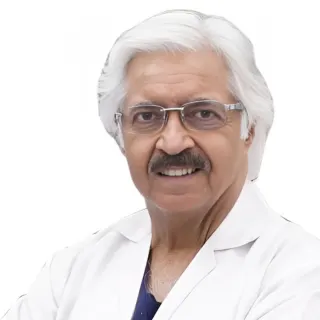
Chairman
Interventional Cardiologist
Fortis Escorts Heart Institute, New Delhi
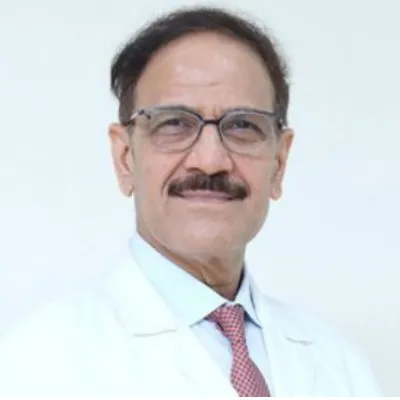
Chairman
Interventional Cardiologist
BLK-Max Super Speciality Hospital, New Delhi
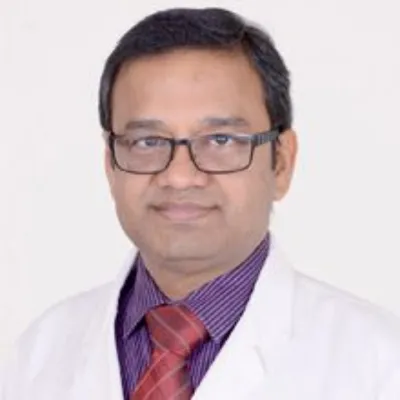
Director
Cardiologist, Interventional Cardiologist
Max Super Speciality Hospital, Saket, New Delhi
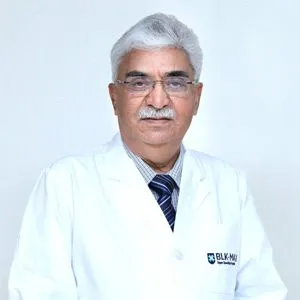
Chairman
Cardiac Electrophysiologist, Interventional Cardiologist
BLK-Max Super Speciality Hospital, New Delhi

Consultant
Interventional Cardiologist
Indraprastha Apollo Hospital, New Delhi
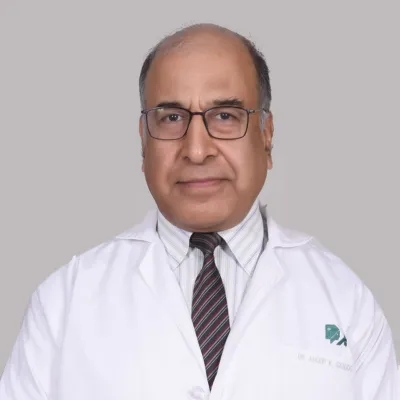
Senior Consultant
Cardiothoracic and Vascular Surgeon
Indraprastha Apollo Hospital, New Delhi
Doctor of Pharmacy
Dr. Deepanshu Siwach is a skilled clinical pharmacist with a Doctor of Pharmacy degree.?He has 4+?years of experience and has worked with thousands of patients. He has been associated with some of the top hospitals, such as Artemis Gurgaon.
Dr. Deepanshu Siwach is a skilled clinical pharmacist with a Doctor of Pharmacy degree.?He has 4+?years of experience and has worked with thousands of patients. He has been associated with some of the top hospitals, such as Artemis Gurgaon....
Dr. Aseem Ranjan Srivastava is an experienced Pediatric Cardiothoracic Surgeon specializing in Minimal Access and Robotic Cardiac Surgery. He strongly recommends prompt corrective repair when possible....
The Art of Effective Communication
 10 December,2025
Read More
10 December,2025
Read More
 09 December,2025
Read More
09 December,2025
Read More
 05 December,2025
Read More
05 December,2025
Read More
 04 December,2025
Read More
04 December,2025
Read More
 27 November,2025
Read More
27 November,2025
Read More
 25 November,2025
Read More
25 November,2025
Read More